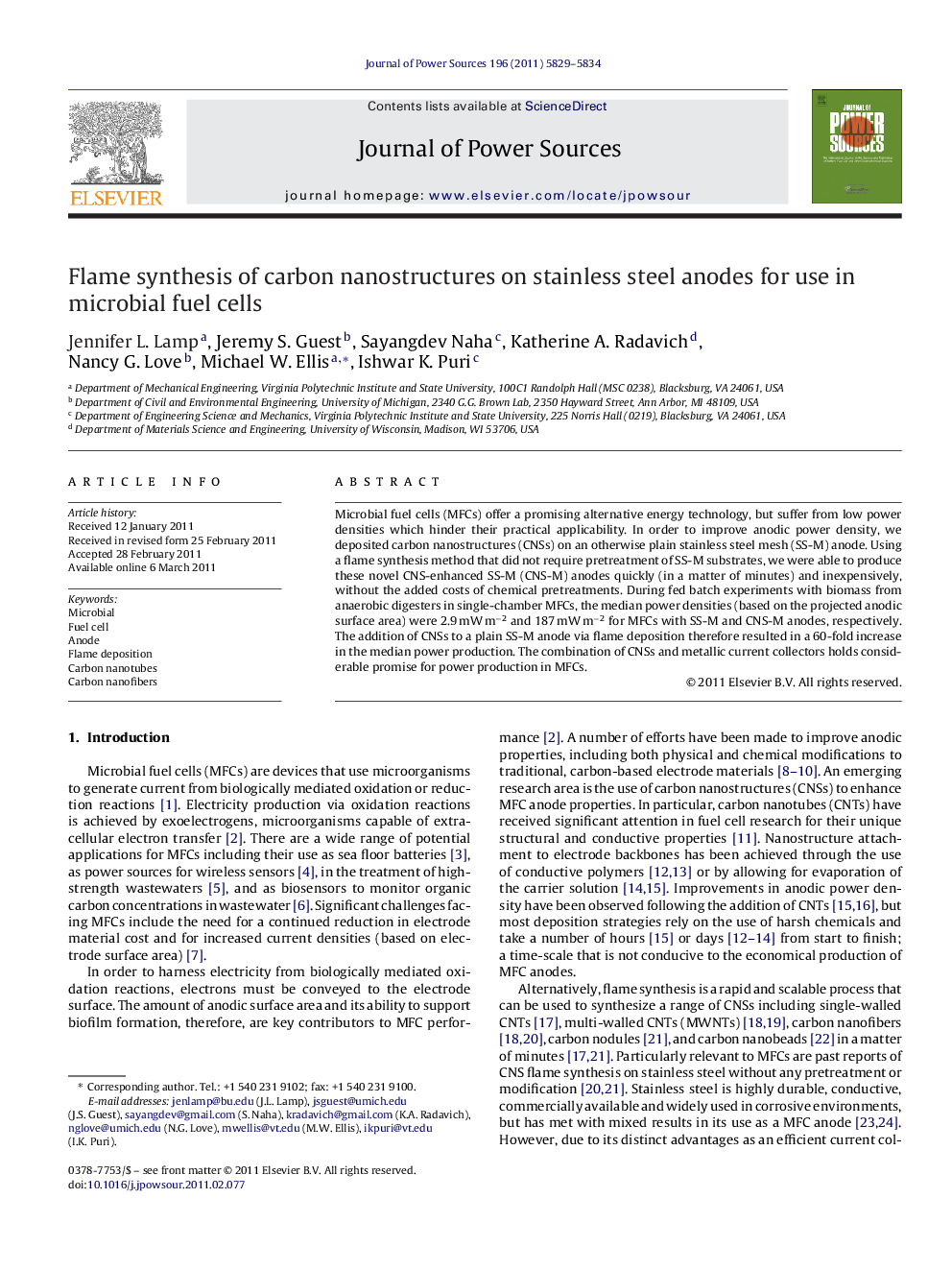| Article ID | Journal | Published Year | Pages | File Type |
|---|---|---|---|---|
| 1288934 | Journal of Power Sources | 2011 | 6 Pages |
Microbial fuel cells (MFCs) offer a promising alternative energy technology, but suffer from low power densities which hinder their practical applicability. In order to improve anodic power density, we deposited carbon nanostructures (CNSs) on an otherwise plain stainless steel mesh (SS-M) anode. Using a flame synthesis method that did not require pretreatment of SS-M substrates, we were able to produce these novel CNS-enhanced SS-M (CNS-M) anodes quickly (in a matter of minutes) and inexpensively, without the added costs of chemical pretreatments. During fed batch experiments with biomass from anaerobic digesters in single-chamber MFCs, the median power densities (based on the projected anodic surface area) were 2.9 mW m−2 and 187 mW m−2 for MFCs with SS-M and CNS-M anodes, respectively. The addition of CNSs to a plain SS-M anode via flame deposition therefore resulted in a 60-fold increase in the median power production. The combination of CNSs and metallic current collectors holds considerable promise for power production in MFCs.
► Flame synthesis of carbon nanostructures is achieved in minutes on stainless steel mesh microbial fuel cell (MFC) anodes without pretreatment. ► Carbon nanostructures increased median MFC anodic power density by a factor of 60. ► Carbon nanostructures increase biomass attachment to stainless steel MFC anodes. ► Carbon nanostructures enable the use of treated stainless steel current collectors as MFC anodes.
